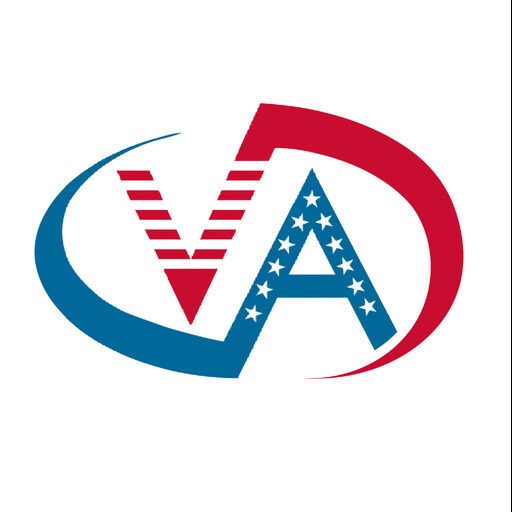The GI Bill is a powerful tool for Veterans looking to advance their careers or transition into civilian roles. While many people think of traditional college degrees when using GI Bill benefits, it’s also an excellent resource for earning professional certifications.
Certifications are often faster and more targeted than degree programs, providing you with the skills and credentials needed to land high-demand jobs in industries like technology, healthcare, and skilled trades.
If you’re considering how to get the most out of your GI Bill, certifications can be a smart investment in your future.
Why Certifications Are a Great Choice
Certifications can open doors to lucrative careers and are often more accessible and cost-effective than degree programs.
Key Benefits:
- Shorter Time Commitment: Many certifications can be earned in months instead of years.
- High ROI: Certifications can lead to high-paying jobs with minimal upfront costs.
- Industry-Specific Skills: You’ll gain practical skills that align with employer needs.
- Flexible Learning Options: Many programs offer online or part-time options, allowing you to learn at your own pace.
“Certifications are perfect for Veterans who want to transition quickly into civilian careers without spending years in school,” explains career coach and Army Veteran Jason Reed.
Popular Certifications Covered by the GI Bill
The GI Bill covers a wide range of certifications, making it easier to find one that aligns with your career goals. Below are some of the most in-demand certifications by industry:
| Industry | Certification | Average Salary |
|---|---|---|
| Technology | CompTIA Security+ | $85,000 |
| Technology | AWS Certified Solutions Architect | $130,000 |
| Healthcare | Certified Nursing Assistant (CNA) | $30,000 |
| Healthcare | Registered Health Information Technician (RHIT) | $55,000 |
| Skilled Trades | Electrician Certification | $60,000 |
| Skilled Trades | HVAC Technician Certification | $50,000 |
How to Use the GI Bill for Certifications
Using your GI Bill benefits for certifications is straightforward, but it’s important to follow the proper steps to ensure your expenses are covered.
Steps to Get Started:
- Choose a Certification Program:
- Research programs that align with your career goals.
- Verify that the program is approved for GI Bill funding.
- Apply for VA Education Benefits:
- Submit a VA Form 22-1990 (Application for Education Benefits) through the VA website.
- Ensure you have a Certificate of Eligibility (COE).
- Enroll in an Approved Program:
- Confirm that your chosen institution or certifying body accepts GI Bill benefits.
- Coordinate with the school’s Veteran services office for guidance.
- Track Your Benefits Usage:
- The GI Bill covers tuition, fees, and exam costs. Keep track of your remaining benefits to plan accordingly.
Pro Tip:
Apply early, as the approval process can take several weeks. It’s also helpful to speak with a VA representative to clarify any questions about eligibility.
Top Technology Certifications for Veterans
The tech industry is a popular choice for Veterans due to its high earning potential and demand for problem-solving skills. Below are some GI Bill-approved certifications to consider:
1. CompTIA Security+
- Focus: Cybersecurity fundamentals.
- Average Salary: $85,000.
- Why It’s Valuable: A starting point for cybersecurity careers, covering network security and risk management.
- Read more
2. AWS Certified Solutions Architect
- Focus: Cloud computing and architecture.
- Average Salary: $130,000.
- Why It’s Valuable: Prepares you for roles in one of the fastest-growing fields—cloud technology.
- More details on AWS site
3. Cisco Certified Network Associate (CCNA)
- Focus: Networking basics and configurations.
- Average Salary: $85,000.
- Why It’s Valuable: Recognized globally, this certification is essential for networking roles.
- CCNA certification details
Healthcare Certifications to Consider
Healthcare is another excellent career path for Veterans, offering stability and opportunities to serve others. Here are some certifications covered by the GI Bill:
1. Certified Nursing Assistant (CNA)
- Focus: Patient care and medical assistance.
- Average Salary: $30,000.
- Why It’s Valuable: A quick entry into the healthcare field, with pathways to advanced roles.
2. Registered Health Information Technician (RHIT)
- Focus: Medical records and health information systems.
- Average Salary: $55,000.
- Why It’s Valuable: Combines healthcare and technology, making it ideal for tech-savvy Veterans.
Skilled Trades Certifications
For hands-on learners, skilled trades certifications can lead to rewarding careers. The GI Bill covers training for many trades, including:
1. Electrician Certification
- Focus: Electrical systems and safety protocols.
- Average Salary: $60,000.
- Why It’s Valuable: Electricians are in constant demand, and this role offers job stability.
2. HVAC Technician Certification
- Focus: Heating, ventilation, and air conditioning systems.
- Average Salary: $50,000.
- Why It’s Valuable: A practical and lucrative option for Veterans who enjoy problem-solving and mechanics.
Financial Support and Exam Reimbursement
The GI Bill doesn’t just cover tuition—it can also reimburse you for certification exam costs. Here’s what you need to know:
| Expense | What the GI Bill Covers |
|---|---|
| Tuition and Fees | Full coverage for approved programs |
| Exam Fees | Reimbursement for licensing and certification exams |
| Supplies | May cover books and required materials |
Be sure to keep receipts and submit them to the VA for reimbursement.
Tips for Choosing the Right Certification
With so many options, it’s important to choose a certification that aligns with your skills and interests. Here’s how to make the best decision:
- Assess Your Strengths: Consider careers that match your abilities and military experience.
- Research Job Demand: Look for certifications in high-demand fields with competitive salaries.
- Seek Guidance: Consult with a career counselor or your school’s Veteran support office for advice.
“Choosing a certification isn’t just about the paycheck—it’s about finding a career that aligns with your values and long-term goals,” advises career expert Linda Harris.
FAQs About Certifications and GI Bill Benefits
Can I use the GI Bill for certifications instead of a degree?
Yes, the GI Bill covers certifications, vocational training, and licensing exams, offering flexibility for Veterans pursuing non-traditional education paths.
What certifications are covered by the GI Bill?
The GI Bill covers a wide range, including tech certifications like AWS and CompTIA, healthcare certifications, and skilled trades such as electrician and HVAC training.
Does the GI Bill cover exam fees?
Yes, it reimburses certification and licensing exam fees, ensuring you can afford both training and testing costs.
How do I know if a certification is approved for GI Bill funding?
Visit the VA’s WEAMS (Web Enabled Approval Management System) to check if your program or institution is approved.
Can I use the GI Bill for online certification programs?
Yes, many online programs are approved, allowing you to complete certifications remotely at your convenience.
How long does it take to complete a certification?
It depends on the program, but most certifications can be completed in 3 to 12 months, making them a quicker alternative to traditional degrees.
What happens if I run out of GI Bill benefits?
You may qualify for extensions or supplemental funding, such as the Edith Nourse Rogers STEM Scholarship, for eligible fields.
Do certifications count toward professional licensing?
Yes, many certifications, such as CNA or RHIT, fulfill requirements for professional licensing, helping you advance in your career.

The VA Loan Network Editorial Team is comprised of dedicated mortgage specialists and financial writers committed to providing veterans and service members with accurate, up-to-date information on VA loan benefits, eligibility, and the home-buying process.








